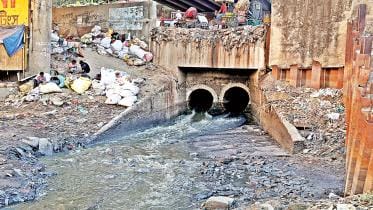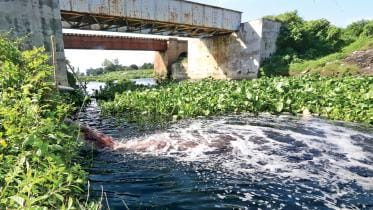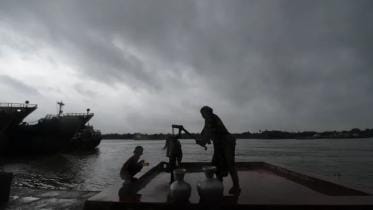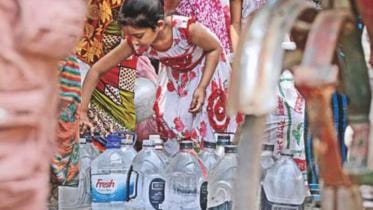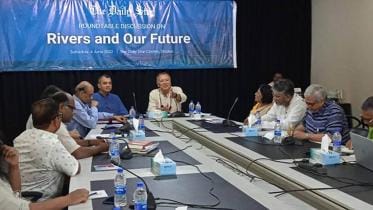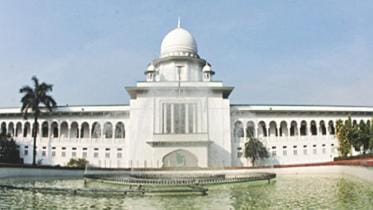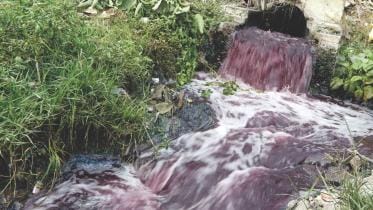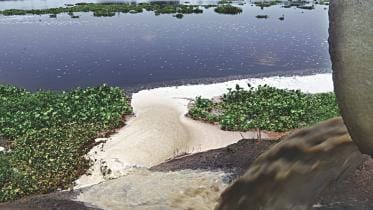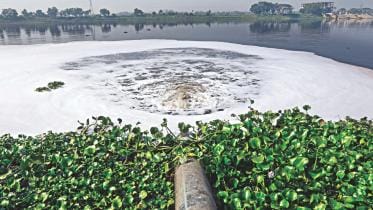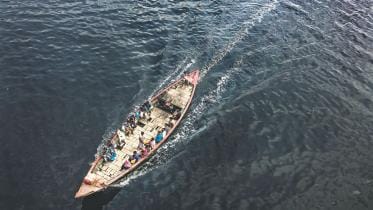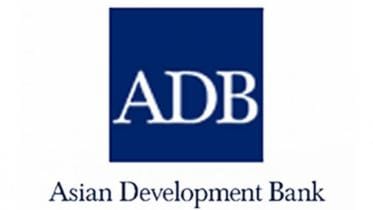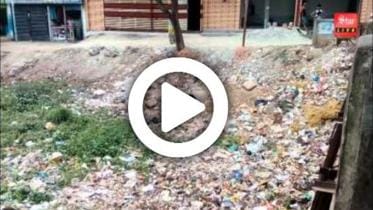water pollution
Sewage pollution killing city’s water bodies
90% of Dhaka city outside Wasa’s sewerage network; decade-old master plan for sewage treatment plants remains unimplemented
5 April 2025, 18:01 PM
‘Toxic PFAS found in water near textile factories’
High percentage of a harmful substance was found in the water near the country’s garment factories, according to a new study.
29 May 2024, 18:00 PM
Stop disturbing the Sundarbans!
Restrain traffic of ships through the forest
22 March 2024, 19:00 PM
Monitor groundwater to manage it better
Climate impact on groundwater and solutions
3 January 2024, 03:00 AM
Prioritise piped water supply in our municipalities
The municipal bodies must take water supply as their mandatory function more seriously and draw up a medium-term plan to bring 100 percent of urban population under a piped water supply network by 2030.
22 February 2023, 16:30 PM
Execution of law, accountability essential to save rivers: Speakers
Ensuring accountability of government agencies in-charge of conserving rivers, empowering National River Conservation Commission (NRCC), enhancing the institutional capacity, and executing concerned laws with political commitment are some of the essential factors to save the country’s rivers, speakers in a roundtable discussion have said.
4 June 2022, 16:30 PM
Shut factories operating illegally, polluting Buriganga
The High Court orders the Department of Environment (DoE) DoE to shut down the operations of all industries, factories and other structures on both shores of Buriganga River, which running without its approval and polluting the river.
8 December 2019, 13:43 PM
Worries over wastewater
Textile industries would be dumping a mind-boggling 20,300 crore litres of untreated wastewater into the country's waterbodies every year from 2021 if the current situation did not improve, said a Buet study.
11 February 2019, 18:00 PM
Dhaleshwari in danger
The pollution level in the Dhaleshwari has worsened ever since the Tannery Industrial Estate was set up near the river in Savar.
13 June 2018, 18:00 PM
Poisoning the Dhaleshwari
After the Buriganga, the tannery industry is now polluting the Dhaleshwari river, as the central effluent treatment plant (CETP) for treating liquid waste and hazardous chemicals is yet to be fully operational.
29 December 2017, 18:00 PM
Water: Garments’ invisible price
Bangladesh boasts as the world’s number two garment exporter. Every third European has a t-shirt made in Bangladesh on his back. Every fifth American wears jeans manufactured in Bangladesh.
But this is not a story of how many million pieces we export. This is a story of the invisible price we pay every time a jeans rolls out of a factory in Bangladesh. The western buyers little know how much water, that precious resource, was used to wash and dye his shirt.
The figures are mind boggling.
17 September 2017, 09:01 AM
What happens to our e-waste?
What do you do with the damaged battery or chargers of your cell phone? Where do you keep your fused bulbs and abandoned switches? What about obsolete computer accessories?
22 June 2017, 18:00 PM
Pollution From Waste: Buriganga water shows signs of improvement
However insignificant, the quality of Buriganga water is showing signs of improvement.
21 March 2017, 18:00 PM
ADB signs $30m loan for garment sector
The Asian Development Bank (ADB) signs a $30-million loan deal with Brac Bank, which will be used to finance the construction and upgrade of garment factories in Bangladesh.
27 April 2016, 14:46 PM
No standards set for water filters
Companies never tire of boasting about their products, and consumers are easily enticed. But in the case of water purifiers and filters,
22 January 2016, 18:00 PM
The dying Shahjahanpur Jheel (video)
A deltaic country, the plains of Bangladesh are crisscrossed with a million water bodies. The canals, marshlands and the rivers make the quintessential image that Rural Bengal conjures up.
20 April 2015, 13:59 PM



